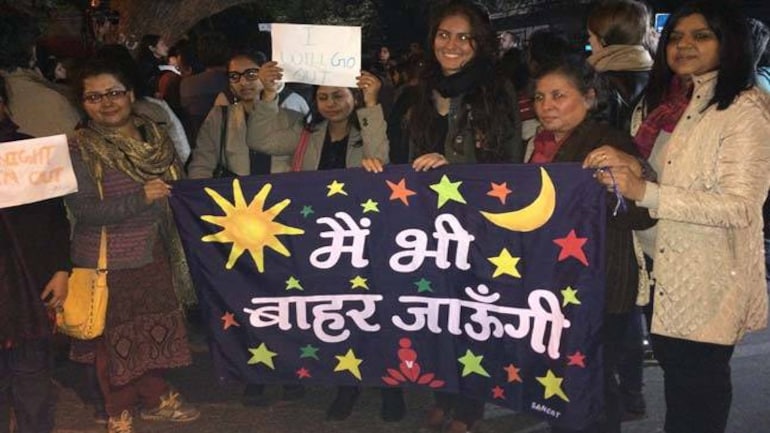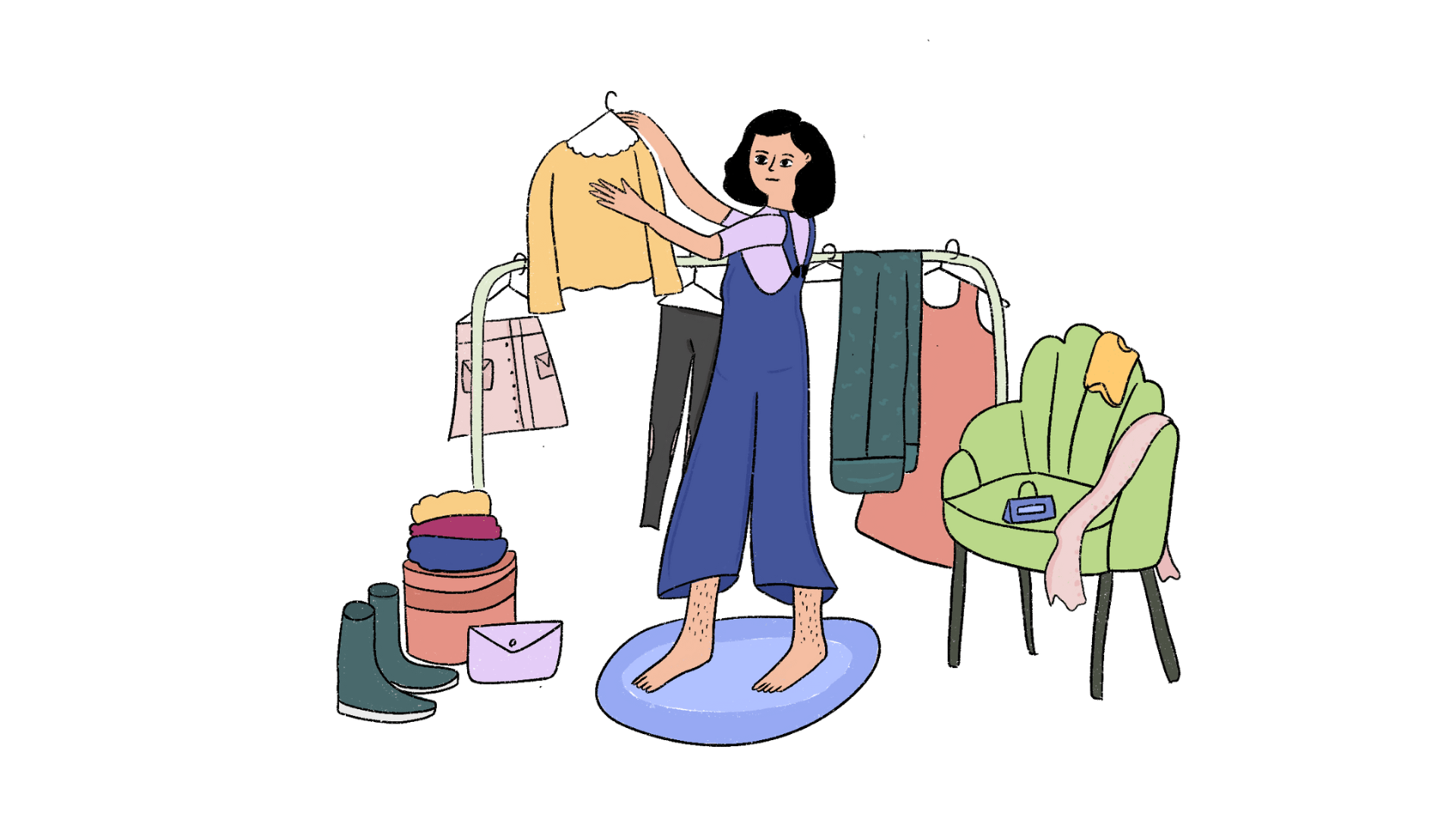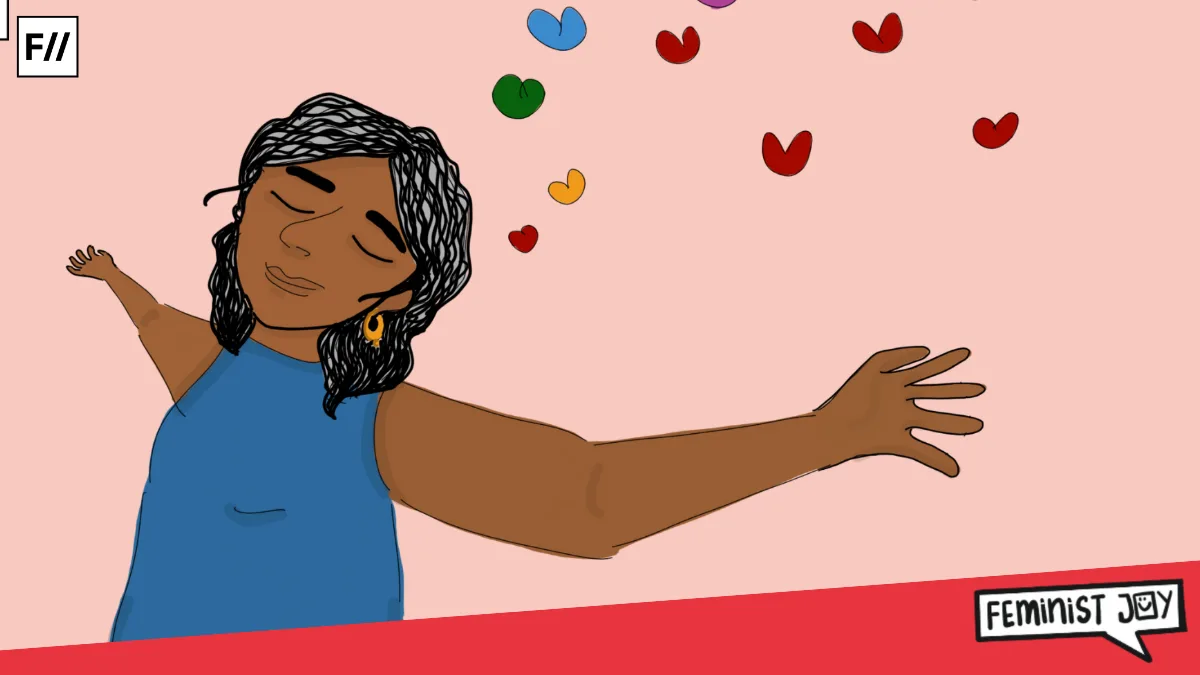Recently whilst working, I observed something about myself that threw me off my track. Sitting in a room made up entirely of men, some quite older, I really did not know how to act. More importantly, I did not know what to do with my body. Usually, I adopt a formal posture, confident with my back straight and chin up. But at that moment, I was confused.
My shoulders turned slightly inwards, my legs uncrossed, and my hands set awkwardly in my lap so that I didn’t move them too much. As the only woman in the room, I was trying to physically make myself smaller, less noticeable. I wanted to occupy as little space as possible and not stand out because I was unsure how people would react to an in-the-face woman like me.
It cannot be confused with the feeling of being out of place; it is much deeper — an uncertainty about one’s very physical existence in a situation. Imagine changing the way you speak when you leave home, biting back all your colloquial phrases, and leaving behind your metaphors. Imagine ignoring the rules of grammar branded into your brain. Seems almost unnatural, doesn’t it? That’s precisely what my mind perceives. I feel eyes focussed on me constantly and am unwillingly compelled to clutch to myself rigidly — a free body is a risk outside the confines of my home.

My shoulders turned slightly inwards, my legs uncrossed, and my hands set awkwardly in my lap so that I didn’t move them too much. As the only woman in the room, I was trying to physically make myself smaller, less noticeable. I wanted to occupy as little space as possible and not stand out because I was unsure how people would react to an in-the-face woman like me.
I lose the spring of my step, and the broadness of my shoulders withers as I will my chest to just not be visible. My body should be able to occupy the space it deserves. Instead, it recoils into itself. Sandra Lee Bartky’s words echo through my brain, “Massiveness, power, abundance in a woman’s body is met with distaste.”
I have always been proud of the woman I have tried to become: somebody who’s comfortable in their femininity, somebody who is vying for equality, somebody who is trying to change outdated viewpoints. But this instance exposed the dissonance that exists between my feminist ideal and my lived reality. It is not that I am not aware of the perpetual tug-of-war that occurs between idealism and actual social conditions; what rattled me is how much I am willing to give up of who I am, to get by in such situations.
There will be plenty of situations where my ‘city-girl modernism’ will be too much, even out of place. Does this mean that my sense of equality must exist in a binary: bold and assertive in the university space, policing and self-checking when outside?
Bartky was right; it is about power. It is always about power and yes, identity.
Women who display assertiveness go against the laws of polite understatedness set out for them; women who act too feminine will never be taken seriously. How to walk on this tightrope without falling to one side? I am unable to figure out how to get by in a world that wants conflicting things from me: to be feminine so as to be a woman, but not too feminine so as to not stand out or alarm. I understand the circumstances differ for cis and trans women and exacerbate for trans women.
We fight to clothe ourselves the way we want, with the societal standards, with doctors, policy-makers, and even partners to have control over our physical frame. And yet, at the slightest situation, my body crumbled into a compliant woman whose physicality betrayed none of the fire she had. I own my body, but I keep on looking at it from the gaze of the other, scattered and malleable.
I love dressing up. I love embellishing my body and walking down the streets with my head held high. There is something about styling myself according to my whims that makes me feel I have control over who I am. It is both a projection of my personality and an armour against the world. But sometimes, one cannot help but marvel at the comfort a woman can have if she manages to blend in the background.
If for a brief while, she can exist bodily as a person instead of a woman, free of the constant awareness surrounding her body. Linking my femininity to my appearance and presence may seem myopic; after all, feminism is all about embracing various facets of what it means to be a woman and cannot be captured in the body alone. But haven’t female bodies always been a battleground for something?
We fight to clothe ourselves the way we want, with the societal standards, with doctors, policy-makers, and even partners to have control over our physical frame. And yet, at the slightest situation, my body crumbled into a compliant woman whose physicality betrayed none of the fire she had. I own my body, but I keep on looking at it from the gaze of the other, scattered and malleable.
People constantly imbibe in us that it is only pragmatic to adapt to the situations we are in. And I do that. I wear my sombre suits and tie my hair to appear modest when I work. I even lower my siren-of-a-voice to an unassertive octave. But how many parts of my being do I chuck out? How people exist with their bodies is an important part of who they are. Coloured hair, piercings, braids, tattoos, dupattas, sweatpants — they are not just accessories but the physical manifestation of what people believe themselves to be.
Also read: Women In Public Spaces: When Gender Is Ignored While Shaping Cities
The way I sit (and not sit) carries within it years of trying to be brave, of trying to let myself be the way I want. And here we are, after centuries of struggle, women folk still contemplating if their handshake was too dominating. This physical fragmentation not only goes against the feminist ideal but also nips constantly at our bodily integrity.
This is a side effect of patriarchy, isn’t it? Simone De Beauvoir tells us that one is not born a woman but made one. I am just so physically ill-fit for the version I am being moulded into. So yes, this feeling is connected to patriarchy, veritably elaborated upon in feminist discourses. But at the end of the day, it is really about me and other women like me who just want to walk into rooms with a spine of steel and with their chin up.
Also read: The Right to Walk: Women in Public Spaces
Sukeerat Kaur is a freelance journalist pursuing M.A. in Convergent Journalism at AJK-MCRC, Jamia Millia Islamia. You may find her on Instagram.
Featured Image Source: Shreya Tingal for Feminism In India




